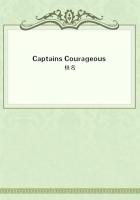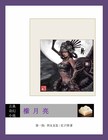THE SPANIARDS ON THE SEA.
Day had not yet dawned when Nigel was in the chamber of Chandos preparing him for his departure and listening to the last cheery words of advice and direction from his noble master. That same morning, before the sun was half-way up the heaven, the King's great nef Philippa, bearing within it the most of those present at his banquet the night before, set its huge sail, adorned with the lions and the lilies, and turned its brazen beak for England.
Behind it went five smaller cogs crammed with squires, archers and men-at-arms.
Nigel and his companions lined the ramparts of the castle and waved their caps as the bluff, burly vessels, with drums beating and trumpets clanging, a hundred knightly pennons streaming from their decks and the red cross of England over all, rolled slowly out to the open sea. Then when they had watched them until they were hull down they turned, with hearts heavy at being left behind, to make ready for their own more distant venture.
It took them four days of hard work ere their preparations were complete, for many were the needs of a small force sailing to a strange country. Three ships had been left to them, the cog Thomas of Romney, the Grace Dieu of Hythe, and the Basilisk of Southampton, into each of which one hundred men were stowed, besides the thirty seamen who formed the crew. In the hold were forty horses, amongst them Pommers, much wearied by his long idleness, and homesick for the slopes of Surrey where his great limbs might find the work he craved. Then the food and the water, the bow-staves and the sheaves of arrows, the horseshoes, the nails, the hammers, the knives, the axes, the ropes, the vats of hay, the green fodder and a score of other things were packed aboard. Always by the side of the ships stood the stern young knight Sir Robert, checking, testing, watching and controlling, saying little, for he was a man of few words, but with his eyes, his hands, and if need be his heavy, dog-whip, wherever they were wanted.
The seamen of the Basilisk, being from a free port, had the old feud against the men of the Cinque Ports, who were looked upon by the other mariners of England as being unduly favored by the King.
A ship of the West Country could scarce meet with one from the Narrow Seas without blood flowing. Hence sprang sudden broils on the quay side, when with yell and blow the Thomases and Grace Dieus, Saint Leonard on their lips and murder in their hearts, would fall upon the Basilisks. Then amid the whirl of cudgels and the clash of knives would spring the tiger figure of the young leader, lashing mercilessly to right and left like a tamer among his wolves, until he had beaten them howling back to their work.
Upon the morning of the fourth day all was ready, and the ropes being cast off the three little ships were warped down the harbor by their own pinnaces until they were swallowed up in the swirling folds of a Channel mist.
Though small in numbers, it was no mean force which Edward had dispatched to succor the hard-pressed English garrisons in Brittany. There was scarce a man among them who was not an old soldier, and their leaders were men of note in council and in war.
Knolles flew his flag of the black raven aboard the Basilisk.
With him were Nigel and his own Squire John Hawthorn. Of his hundred men, forty were Yorkshire Dalesmen and forty were men of Lincoln, all noted archers, with old Wat of Carlisle, a grizzled veteran of border warfare, to lead them.
Already Aylward by his skill and strength had won his way to an under-officership amongst them, and shared with Long Ned Widdington, a huge North Countryman, the reputation of coming next to famous Wat Carlisle in all that makes an archer. The men-at-arms too were war-hardened soldiers, with Black Simon of Norwich, the same who had sailed from Winchelsea, to lead them.
With his heart filled with hatred for the French who had slain all who were dear to him, he followed like a bloodhound over land and sea to any spot where he might glut his vengeance. Such also were the men who sailed in the other ships, Cheshire men from the Welsh borders in the cog Thomas, and Cumberland men, used to Scottish warfare, in the Grace Dieu.
Sir James Astley hung his shield of cinquefoil ermine over the quarter of the Thomas. Lord Thomas Percy, a cadet of Alnwick, famous already for the high spirit of that house which for ages was the bar upon the landward gate of England, showed his blue lion rampant as leader of the Grace Dieu. Such was the goodly company Saint-Malo bound, who warped from Calais Harbor to plunge into the thick reek of a Channel mist.
A slight breeze blew from the eastward, and the highended, round-bodied craft rolled slowly down the Channel. The mist rose a little at times, so that they had sight of each other dipping and rising upon a sleek, oily sea, but again it would sink down, settling over the top, shrouding the great yard, and finally frothing over the deck until even the water alongside had vanished from their view and they were afloat on a little raft in an ocean of vapor. A thin cold rain was falling, and the archers were crowded under the shelter of the overhanging poop and forecastle, where some spent the hours at dice, some in sleep, and many in trimming their arrows or polishing their weapons.
At the farther end, seated on a barrel as a throne of honor, with trays and boxes of feathers around him, was Bartholomew the bowyer and Fletcher, a fat, bald-headed man, whose task it was to see that every man's tackle was as it should be, and who had the privilege of selling such extras as they might need. A group of archers with their staves and quivers filed before him with complaints or requests, while half a dozen of the seniors gathered at his back and listened with grinning faces to his comments and rebukes.















